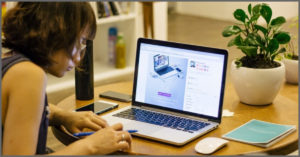TBI Blogs: This Visually Challenged Lawyer Dreams of Becoming a Judge – and He’s on His Way There Already
Despite being instrumental in helping the cause of the disabled in the country, the Indian judiciary has been unable to remove discrimination from within the legal profession. Now, with a landmark order, the Andhra Pradesh High Court has set the ball rolling to remedy the situation.
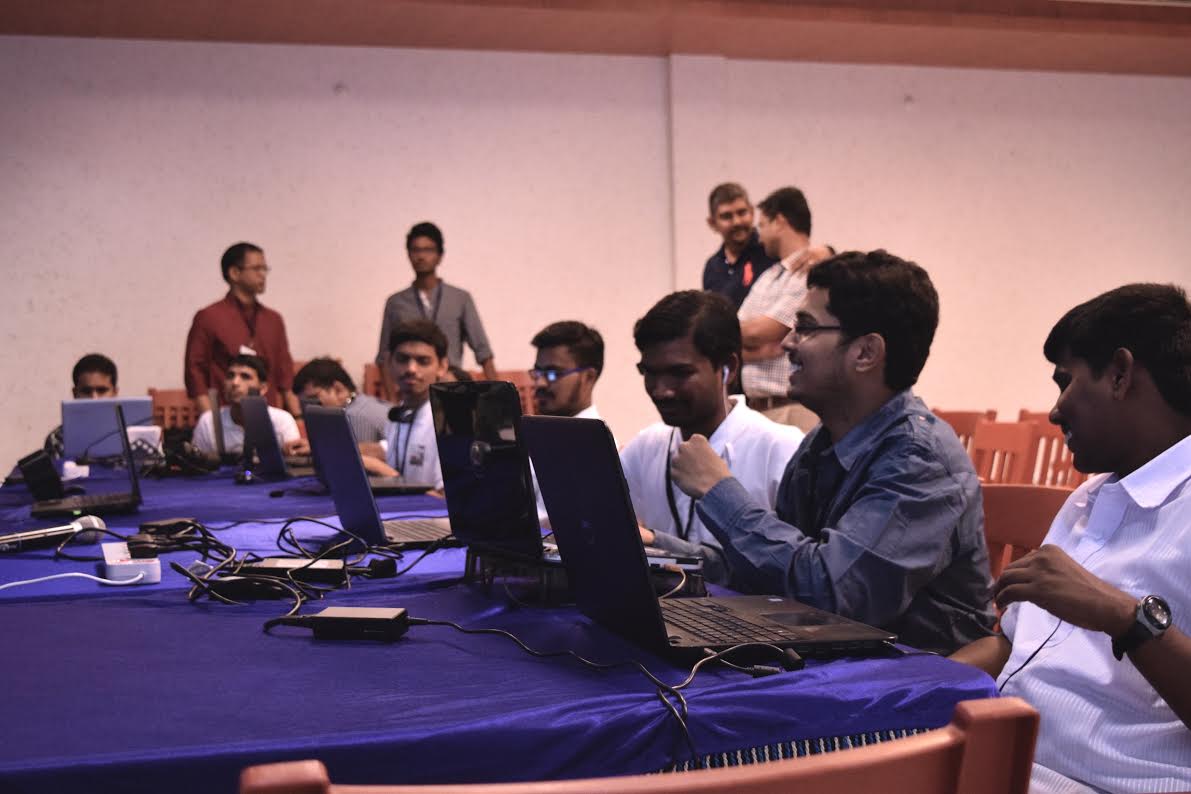
Despite being instrumental in helping the cause of the disabled in the country, the Indian judiciary has been unable to remove discrimination from within the legal profession. Now, with a landmark order, the Andhra Pradesh High Court has set the ball rolling to remedy the situation.
In a progressive order, the Andhra Pradesh High Court has paved the way for Arepalli Nagababu, a visually challenged lawyer, to fulfill his dream of becoming a judge after his successful challenge of the existing rules which prevented him from doing so.
When Nagababu filed his examination form for the judicial services examinations, he found that the AP Judicial Service Rules do not envisage acceptance for candidates who are visually impaired. On the day of submission, the authorities told him that higher-ups would reject the application. Nagababu, who is an IDIA scholar and a graduate of National Law University, Odisha, moved the High Court.
He argued that the Rules are inconsistent with the Persons with Disabilities Act of 1995 and the guarantee of equality embodied in the Indian Constitution.
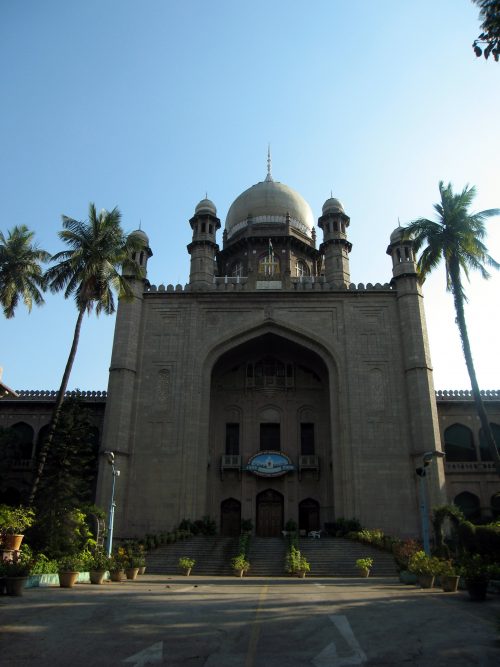
The High Court is still deciding the legality of the Judicial Service Rules, but for the interim period, it unequivocally noted in its November 14th order that “[Nagababu] cannot be denied participation in the selection process under the open category merely on account of his handicap (blindness).”
The Court recognized that Nagababu needed to compete on a level playing field with his sighted counterparts. Therefore, it directed the High Court registry to provide him a scribe who can write his exams and 20 minutes extra time per hour in accordance with Central Government guidelines.
When asked about the order, Nagababu said, “I am happy that the court has allowed me to sit for the exam, but I would have been much happier if they had declared the Rules illegal and unconstitutional for failing to provide reservation for visually challenged candidates. Until that is done, we may be forced to approach the court again and again for ad hoc relief.”
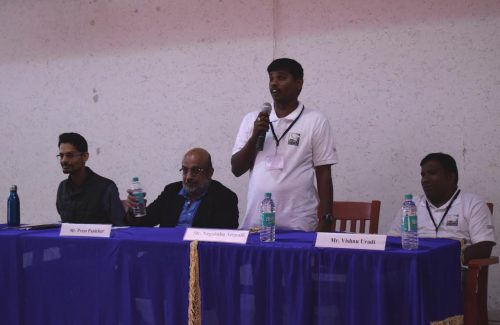
Nagababu’s lawyer, Vivek Reddy, who had appeared for him probono, firmly asserts Nagababu’s right to give the judicial services examination on an equal footing with other students. Speaking about the larger picture of accessibility to the legal ecosystem for judges with disabilities, he also noted, “There is a lot of resistance to the idea of appointing a blind judge.”
Anusha Reddy, who trained Nagababu for the Common Law Admission Test (CLAT) in 2010 and now heads the IDIA Disability Access Programme, believes blindness does not result in incompetence. “Visual acuity should not be a prerequisite for becoming a judge. With the aid of screen-reading software and sighted readers, there is nothing to prevent a person who is blind or who has low vision from effectively discharging his/her functions as a judge,” she says.
The discrimination faced by the disabled is not confined to the judiciary. It permeates other spheres of the profession. More and more young blind men and women demonstrate through their experiences that labels and stereotypes do not limit them. Rahul Bajaj is a bright final-year law student at the University of Nagpur. He is also visually impaired, and often told not to litigate in courts because of his disability.
Talking about his experiences, Rahul says, “It is very frustrating to have to deal with people in positions of power who view you through the prism of your disability, no matter what skills, abilities and talents you may otherwise possess.”
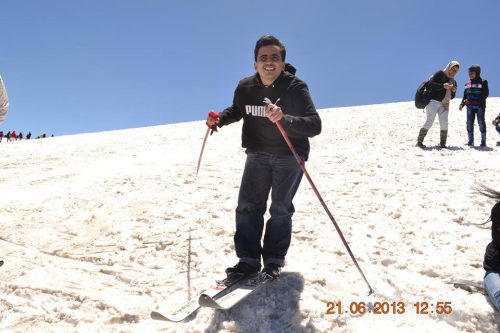
Vidushi Kothari, a law graduate from Government Law College, Mumbai faced similar difficulties when applying for her Masters degree. The Assistant Director at a leading private university told her to apply elsewhere. The university would not accommodate her vision impairment, as it was not bound to do so under law. After multiple such instances, Vidushi went on a war footing, filing copious RTIs. Finally, the Disability Commissioner gave an order, requiring all colleges to be disabled-friendly. Vidushi completed her LLM at the Indian Law Institute. Subsequently, she took on a job as Associate Director-in-charge of the Research and Policy Team at IDIA. Here, she supervises diversity surveys conducted by students to evaluate matters related to accessibility and inclusion of all groups.
“We must see exclusions and prejudices other than the ones we face,” she believes.
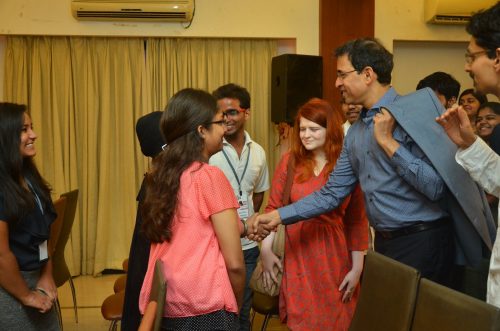
Maitreya – Student Team Leader of the IDIA Disability Access Programme – is a high-achieving second-year student at Gujarat National Law University. He has done three national moots where he has asserted his right to assistive aids on account of complete blindness; he continues to work tirelessly to make his college accessible. Maitreya has independently headed several disability rights projects leading to accessible infrastructure and more accommodative mindsets at his University. He is passionate about disability rights and his enthusiasm is infectious. However, his memories of giving the CLAT are unpleasant, as he was denied access to the test in text-to-speech format.
Maitreya’s case remains pending with the Disability Commissioner, where he continues to doggedly pursue the matter.
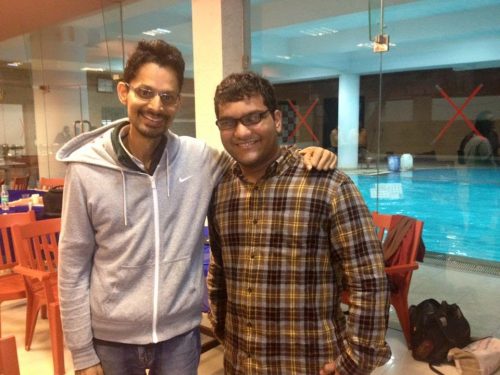
Aravind, a graduate of NUJS Kolkata, is an IDIA scholar with low vision. He speaks passionately at several IDIA events and conferences about disability rights. “Visually challenged people should be given the opportunity to prove themselves. There are many people who are blind and are practicing law, working in corporates, teaching in universities, working in PSUs. So why stop us from becoming judges? In the field of law, unlike the field of medicine or military services, the requirement of vision is ancillary and not essential. We must be provided a platform to prove ourselves and not be denied the opportunity to become a judge,” believes Aravind.
Many young Indians with disabilities work tenaciously to challenge traditional mindsets about their abilities and career choices. They no longer accept stereotypes and challenge these legally, socially and intellectually, working with the State, institutions, and not-for-profits. A handful of N.G.Os such as Saksham and Enable India have achieved remarkable progress in fostering diversity and inclusion. Increasing Diversity by Increasing Access (IDIA) is a student-run movement that promotes diversity and inclusion in legal education. Additionally it provides legal support to cases such as Nagababu’s. Its core mandate is to empower marginalized communities through the tool of legal education.
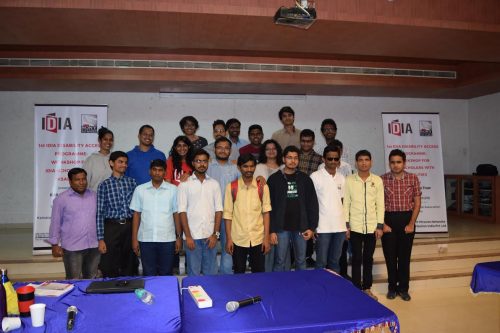
To learn more about Increasing Diversity by Increasing Access (IDIA), and/or to support the movement visit www.idialaw.com.
Like this story? Or have something to share? Write to us: [email protected], or connect with us on Facebook and Twitter.
NEW: Click here to get positive news on WhatsApp!
This story made me
- 97
- 121
- 89
- 167
Tell Us More
We bring stories straight from the heart of India, to inspire millions and create a wave of impact. Our positive movement is growing bigger everyday, and we would love for you to join it.
Please contribute whatever you can, every little penny helps our team in bringing you more stories that support dreams and spread hope.








